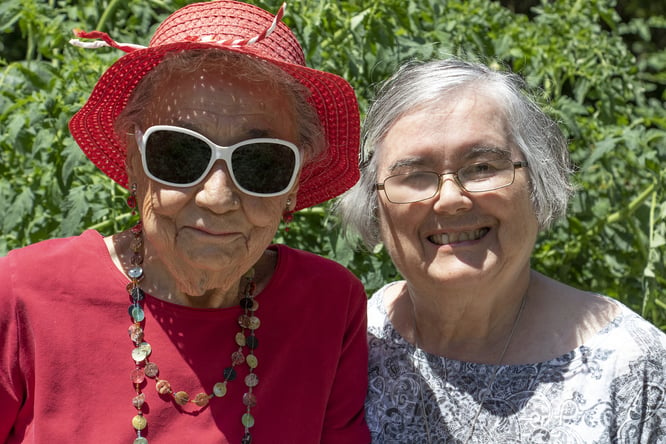Download our Free Guide:
Senior Living Explained
Learn what different types of senior living care are available and which one best fits your needs now and in the future.



Most adults start to notice a need for glasses as they reach middle age – at least for reading. But aging can affect our eyes in other ways as well. And some of those changes pose more serious problems than the need for a stronger eyeglasses prescription. That’s why regular eye exams are essential for seniors. But how often should you (or your older parent) get your eyes checked?
Every Year, if You Are Over 60
Younger adults can go longer between eye exams, unless they suffer from a chronic condition that negatively affects eyesight. However, many conditions that can impair your vision as you age can also sneak up on you – showing no symptoms until something is very obviously wrong. The American Optometric Association (AOA) says getting an annual exam helps ensure your eyes stay as healthy as possible. They also stress contacting your eye doctor right away if your vision changes.
 Age-Related Vision Changes You’d Rather Avoid
Age-Related Vision Changes You’d Rather Avoid
It’s not a matter of how clearly you can see, says the AOA. Eye problems can make daily living more difficult when they reduce your depth perception or color perception, alter your effective field of vision, or make you especially sensitive to light or glare. Some eye problems, left untreated, can cause blindness. Common age-related eye problems include:
 You’re at higher risk for later-in-life vision problems if you have:
You’re at higher risk for later-in-life vision problems if you have:
Every Year, So You Can See Better, Longer
Whether you choose an eye doctor who is an Optometrist or an Ophthalmologist, be sure to schedule a visit at least once a year. And be honest about any changes you may have noticed in your vision or other concerns you may have, even if they don’t seem significant right now. Early detection can mean the difference between successful correction or management of an emerging condition, rather than unnecessary worsening of your sight and ability to function independently. And knowing you’re doing everything you can to protect your eye health and sight will give you greater peace of mind.
How Can We Help?
Magnolia Manor provides transportation for our residents, so you'll never miss an eye exam. If you have questions about senior living at any of our communities, please give us a call at 855-540-LIFE (5433).
Learn what different types of senior living care are available and which one best fits your needs now and in the future.
